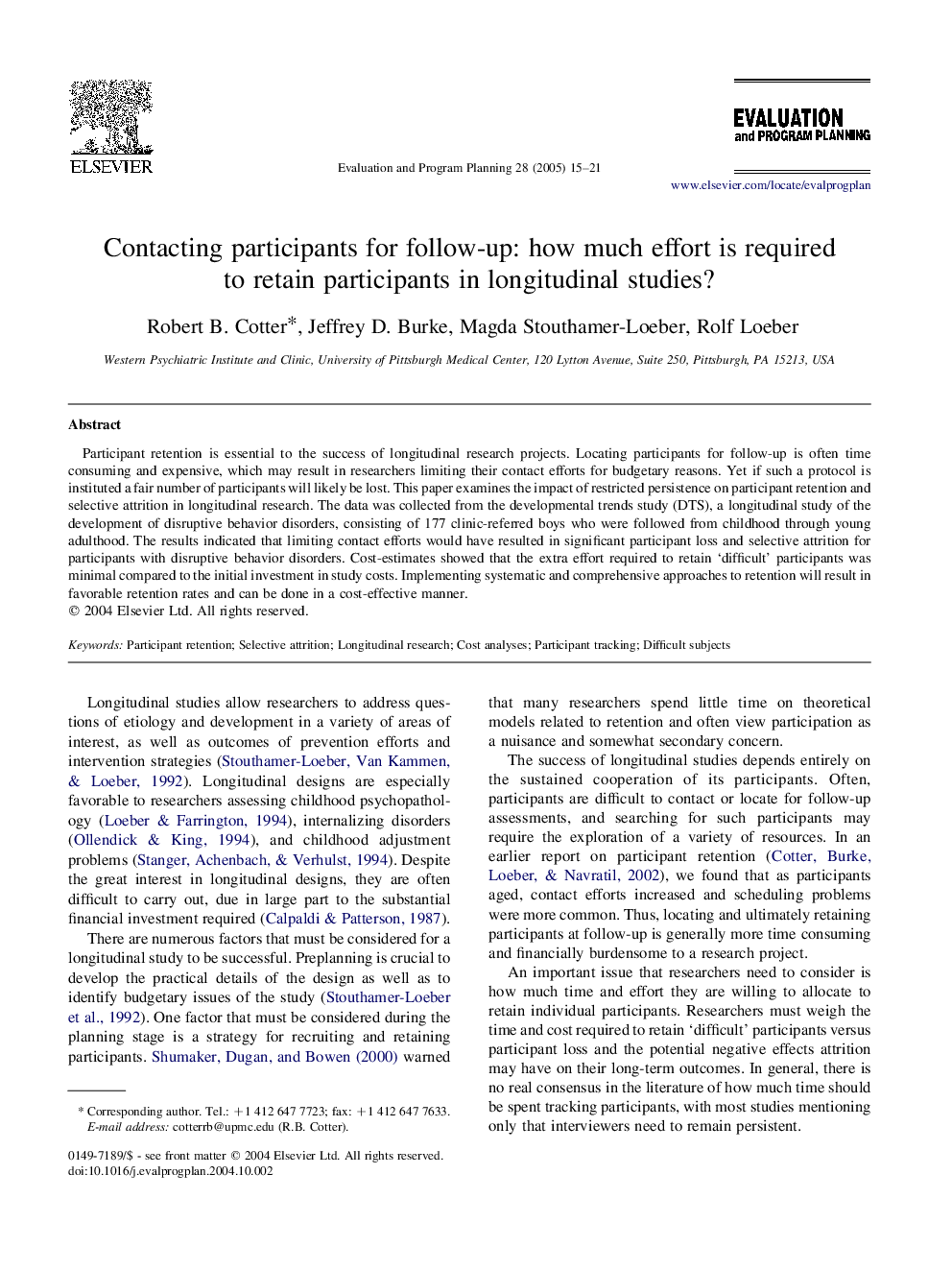| Article ID | Journal | Published Year | Pages | File Type |
|---|---|---|---|---|
| 10300579 | Evaluation and Program Planning | 2005 | 7 Pages |
Abstract
Participant retention is essential to the success of longitudinal research projects. Locating participants for follow-up is often time consuming and expensive, which may result in researchers limiting their contact efforts for budgetary reasons. Yet if such a protocol is instituted a fair number of participants will likely be lost. This paper examines the impact of restricted persistence on participant retention and selective attrition in longitudinal research. The data was collected from the developmental trends study (DTS), a longitudinal study of the development of disruptive behavior disorders, consisting of 177 clinic-referred boys who were followed from childhood through young adulthood. The results indicated that limiting contact efforts would have resulted in significant participant loss and selective attrition for participants with disruptive behavior disorders. Cost-estimates showed that the extra effort required to retain 'difficult' participants was minimal compared to the initial investment in study costs. Implementing systematic and comprehensive approaches to retention will result in favorable retention rates and can be done in a cost-effective manner.
Related Topics
Health Sciences
Medicine and Dentistry
Public Health and Health Policy
Authors
Robert B. Cotter, Jeffrey D. Burke, Magda Stouthamer-Loeber, Rolf Loeber,
